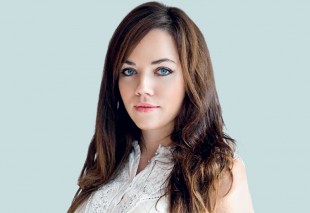

Comment: Don't mention the d-word

When I worked for Scotland’s national tourism organisation, I was part of an accessible tourism project, spearheaded by my colleague Chris McCoy, the organisation's diversity & equality manager.
The impetus behind the project was to encourage the tourism industry to prepare to “welcome the world” for The 2014 Commonwealth Games, held in Glasgow, and that meant tapping into the ‘accessibility market’. This didn’t just comprise people in wheelchairs, but those with young children, elderly people, and those with all types of physical and cognitive impairments.
At the time, this market was estimated to be 11 million people with a disposable income of US $118 billion per year.
When the occasional ‘tut-tut’ was uttered in objection to the group’s encouragement of ‘exploiting disabled people’, Chris’ argument was that the accessible market is made up of customers who, just like everyone else, want to be treated with respect and enjoy high-quality services and facilities that meet or exceed expectations.
However, people living with disabilities often face barriers to pursuing their travel and tourism goals, and this is normally down to poor service from staff who are perhaps nervous about how best to treat them.
VisitScotland subsidised disability awareness training for tourism businesses, which was conducted by disablility charity Capability Scotland. I participated in a session, during which I learned that in order to overcome the 'fear factor' of potentially offending guests with disabilities, staff must start by talking about disability and get to know the correct language to use so they feel more confident.
I learned that words you might think are offensive, are actually not. For example, there’s nothing wrong with saying ‘disabled’, however I often find people are reluctant to use it. When I arrived in Dubai however, I was shocked to learn that ‘handicapped’ is still in vogue. This was a term used in the 1800s to describe people who begged with caps in their hands because they weren’t able to work due to an impairment.
It is now not considered politcally correct in the UK, and I think a visitor from the UK, or any other country where the word is extinct, may find the signs in Dubai Metro stations that read ‘Elevator for the handicapped only’ bordering on outrageous.
A few months ago I was pleased to meet Andrew Westerman and Paul Conrathe from Ebdaah, a Dubai-based multi-disciplinary consultancy that provides disability awareness training to hospitality businesses.
The company has been established for just over a year but has already worked with Dusit Thani Dubai on training (see case study in our April issue) and is looking to team up with Media Rotana on a similar project. Andrew talked about the law, passed in March 2014, by vice president and Prime Minister, His Highness Sheikh Mohammed bin Rashid Al Maktoum to protect the rights of people with disabilities in Dubai.
A higher committee to implement the law was created by His Highness Sheikh Hamdan bin Mohammed bin Rashid Al Maktoum, Dubai Crown Prince and Chairman of the Dubai Executive Council. This committee complements ‘My Community: a City for Everyone’, an initiative he launched in November 2013 aimed at helping disabled people overcome social barriers and preventing them from being the target of discrimination or abuse.
It’s fantastic to see the Dubai government taking strong steps to create more equality for residents and visitors to the region, and this is paving the way for company’s like Ebdaah and hotels they work with, to make changes. Another positive development is the launch of family-friendly hotel group First & Foremost Hotels and Resorts, spearheaded by Michael Scully, former GM of the Westin and Le Méridien Mina Seyahi complex and pro golfer Ernie Els.
The hotels, expected to debut in the Middle East, will be autism-friendly, with staff trained to take care of children on the spectrum, and some rooms customised for families with children with autism.
It would be great to hear about more initiatives being undertaken by hotels to train their staff in welcoming disabled customers. After all, the hotel industry must — on a much larger scale than Scotland did in 2014 — prepare to welcome the world in 2020.
Imagine being the hotel in the region that disabled people the world over, knew would cater to their requirements, without judgement or fear? That hotel would be tapping into a huge and lucrative market.